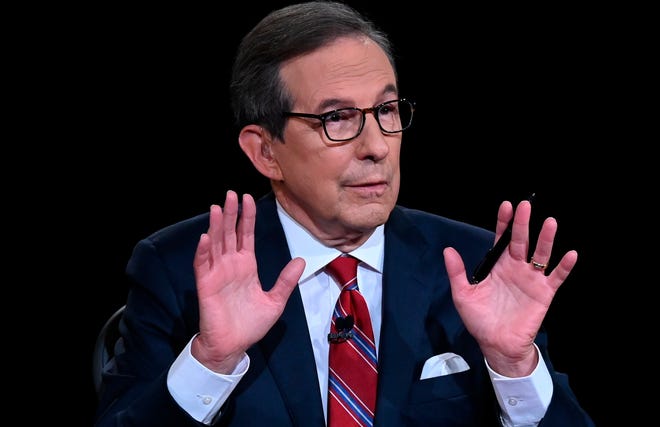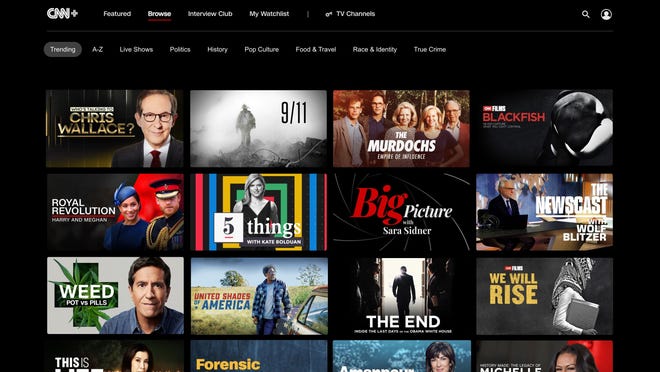That was fast.
CNN+, the online streaming service that debuted March 29, is dead, or at least dying: It will shut down for good April 30.
Boy, did Chris Wallace back the wrong horse.
As in any implosion, there is a host of factors behind it, but the biggest is Discovery’s acquisition of WarnerMedia, CNN’s parent company. The merger became official April 8; the new company, Warner Bros. Discovery, wasted no time cleaning house.
Chris Licht, the incoming chairman and CEO of CNN Worldwide, said in a statement Thursday the decision was made “to cease operations of CNN+ and focus our investment on CNN’s core news-gathering operations and in further building CNN Digital.”
More:CNN+ is shutting down, just three weeks after the newest streaming service’s launch
“This is not a decision about quality; we appreciate all of the work, ambition and creativity that went into building CNN+, an organization with terrific talent and compelling programming,” Licht said. “But our customers and CNN will be best served with a simpler streaming choice.”
Translation, for those who don’t speak corporate: Customers don’t need it, don’t want it and aren’t going to pay for it. Some programming may find its way to a single-destination streaming service that will combine Discovery+ and HBO Max.
Turns out it wasn’t the best idea to launch a high-profile, expensive venture just as the new bosses who had no input into it are on their way into town. You don’t paint the walls purple and pink right before someone new is about to move in.
Early review:Watching CNN+’s first day: ‘So what are we doing here?’ (Hint: Talking about Will Smith)
What did CNN+ lack? Must-see content
In the run-up to the launch of CNN+, its leaders stressed that the service was not meant to be instead of, but in addition to, CNN. So much so that a live feed of CNN wasn’t part of it, even during breaking news stories, thanks to the network’s agreement with cable systems.
That was its biggest shortcoming. If you call something CNN, users expect to find news as it happens, no matter what platform they watch on.

There were some intriguing elements to CNN+: a massive library of shows, such as every episode of “Anthony Bourdain: Parts Unknown” or selected Larry King interviews. CNN anchor Jake Tapper had a book club; former Phoenix Sun Rex Chapman had an interview show.
All of that could live happily on CNN.com, and may have to. There was no must-see show or feature that would make people drop what they were doing and watch, live or otherwise. There just wasn’t much buzz.
Kris Pickel has left Arizona’s Family TV stations: ‘A brutal part of the business’

What’s next for Chris Wallace?
The big name was Wallace. In a surprise move in December, he left Fox News for CNN+ and was critical of his former network in interviews.
Rumors floated that he wasn’t happy with the number of subscribers CNN+ had garnered – about 100,000, according to some reports – and he wanted his own show on CNN proper.
Now’s his chance.
What becomes of Wallace? The vacated Chris Cuomo slot on weeknights might make the most sense for him. He was the subject of much discussion on social media after the CNN+ announcement.
Fox News fans will be gleeful, but this wasn’t a political decision
Fox News viewers who said Wallace wasn’t conservative enough because he dared to ask Donald Trump tough questions or didn’t toe the MAGA line must be gleeful.
Wallace isn’t perfect, but he differs from hosts such as Tucker Carlson and Sean Hannity in that he traffics in actual journalism, which does not require blind loyalty to anyone or anything. In fact, it rejects it.
There’s bound to be similar crowing among the right-wing crowd that no one wanted to pay extra to watch the woke mob destroy their version of America (or whatever the MAGA company line is these days), if they wouldn’t watch regular CNN for free in the first place.
Maybe. But there’s something telling in a statement from J.B. Perrette, the Warner Bros. Discovery International CEO and president of global streaming and interactive entertainment.
“Consumers are at the center of our strategy,” Perrette said.
That strategy is to make the most money possible. No one starts any business to go broke, including the news media. When officials toss around words such as “consumers” instead of “viewers” or “readers,” they make it clear that the bottom line is the bottom line.
The death of CNN+ wasn’t about bad journalism or bad politics.
It was bad business.

